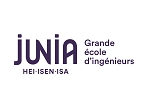Établissement
Langue d'enseignement
FR, EN
Matières
MB-ST
Responsable(s)
V.SENEZ, C.TARHAN
Intervenant(s)
V.SENEZ, C.TARHAN
Présentation
Prérequis
This course introduces biological and clinical applications of MEMS technology. Therefore, students are highly encouraged to take the course on "Design of Bio-MEMS Systems".
Objectifs
MEMS technology found numerous application opportunities in a wide range of fields: automotive industry, telecommunication, optics, consumer electronics, military, etc. One particular field of application is biotechnology. BioMEMS has been applied in medical and health related technologies as Lab-on-a-chip (LOC) and Micro Total Analysis Systems (µTAS). Integrating microfluidics with the mechanical and electrical capabilities of the MEMS technology is crucial to provide devices as miniaturized biosensors, point-of-care diagnostic devices, polymerize-chain-reaction chips and organs-on-a-chip. By the completion of this course, the students will be able to understand the fundamental mechanisms underlying the LOC devices and to follow the latest developments on biological and clinical applications of MEMS and microfluidics.
Targetted skills: 31(311/313), 32(321/323), 51(511), 55(553), 146(1461), 61(611/612), 111(1111), 112(1121/1122), 1110(11103)
Targetted skills: 31(311/313), 32(321/323), 51(511), 55(553), 146(1461), 61(611/612), 111(1111), 112(1121/1122), 1110(11103)
Présentation
The goal of this course is to introduce the fundamentals in the field of microfluidics and their application on biological and clinical studies as LOC devices. At first, fundamental information on common biological targets for LOC devices will be covered. Then, mechanical and electrical characteristics of basic mechanisms of microfluidics will be introduced. After a hands-on laboratory practice to experience the concept of microfluidics in a bioMEMS laboratory, the course will continue with examples of LOC devices and their applications on biology and healthcare.
Modalités
Modalités d'enseignement
Classes will be held as lectures and hands-on lab practice. Students will be asked to perform literature survey, make short presentations and simple written assignments.
Organisation
| Type | Nombre d'heures | Remarque | |
|---|---|---|---|
| Présentiel | |||
| Cours - face à face | 25,00 | ||
| Travaux Pratiques | 3,00 | ||
| Travail personnel | |||
| Travail personnel | 52,00 | ||
| Charge de travail globale de l'étudiant | 80,00 | ||
Évaluation
| Type de Contrôle | Durée | Nombre | Pondération |
|---|---|---|---|
| Contrôle continu | |||
| Epreuve de TP | 4,00 | 1 | 50,00 |
| Examen (final) | |||
| Examen écrit | 2,00 | 1 | 50,00 |
| TOTAL | 100,00 | ||






